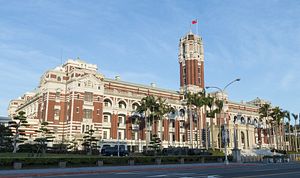For an island of its size, Taiwan possesses an insurmountable amount of energy, especially where its politics are concerned. For much of former President Ma Ying-jeou’s last term in office, many people had been waiting for change: a change in the administration’s attitude in heeding the Taiwanese people’s voices, a change for more transparency in the execution of policies, and, most of all, a change in the Kuomintang’s (KMT) obvious lean toward China.
As the people’s disapproval of the Ma administration festered into a sharp drop in approval ratings–Ma finished his term with roughly 9 percent of the population’s support–his successor stepped into office promising to carry out most, if not all, of what Taiwanese people had long wanted. Tsai Ing-wen and her ruling party, the Democratic Progressive Party (DPP), are now seen as the embodiment of change itself, and all eyes across Taiwan and many more in China were focused on her on the day of her inauguration on May 20, 2016.
The DPP has been historically pro-Taiwanese independence, a stance Beijing has often denounced, saying it would “threaten the peace between the Taiwan Strait.” But as Tsai took position once more as the DPP’s chairwoman and began gearing up for her presidential campaign, she has constantly stood by her decision to maintain the status quo between Taiwan and China, ideally maintaining a peaceful political and economic relationship without damaging Taiwan’s rights as a nation.
When it comes to cross-strait relations, Tsai’s phrasing has been admittedly ambiguous and her inauguration speech has been sharply criticized for, yet again, being vague over the same topic. Pro-Beijing proponents in Beijing and Taipei alike slammed Tsai’s attitude as “murky,” and her speech an “incomplete exam paper.” Beijing’s Taiwan Affairs Office released a statement shortly after Tsai’s inauguration ceremony, saying in the statement that, “Regarding the nature of cross-strait relations that people on the two sides of the Strait are most concerned about, [Tsai] has adopted a vague attitude.”
But while Tsai does not openly disassociate Taiwan from China in her speech, she never once used the term “1992 consensus.” The so-called “1992 consensus” refers to Taiwan and China’s agreement on the existence of “one China,” with differing interpretations on both sides of the strait on what that precisely means. The phrase is largely used by the Ma administration, which China embraced over the past eight years. In the meantime, the Taiwanese people had perhaps gotten used to the words popping up a lot in government propaganda.
Taiwan has a relatively short history of democratic presidential elections, and with many instances of incumbents seeking re-election, the island has only had four presidents to date since becoming a democracy. When comparing the use of keywords in their inauguration speeches, a curious fact also surfaced: While all three of her democratically elected predecessors have used the terms “China,” “Mainland,” or “Chinese people” at least once, Tsai pointedly avoided bringing up words directly relating to China at all. The closest she came to doing so was saying “cross-strait relations,” which she repeated many times.
Tsai’s refusal to accept the KMT’s adoption of the 1992 consensus can be seen as a discreet but firm message to China, indicating that she will not back down when it comes to the question of Taiwan’s sovereignty. Skirting sensitive wording, Tsai chose to focus on preparing the Taiwanese people for improving both economic and political relationships with the United States, Japan, and a number of European countries, with hopes of strengthening Taiwan’s position as a state to be reckoned with.
China’s uneasiness is understandable, as it has grown accustomed to the Ma administration’s easy attitude in following its cross-strait policy preferences. As polite as Tsai’s speech was, and as much as she dedicated the speech to local problems, China perhaps sees her wording as blatantly disregarding its previous influence over Taiwan.
The future remains uncertain, however. Taiwan’s first woman president has only been in office for a little over two weeks and the country is waiting with bated breath to see if she is as good as her unspoken words.
Katherine Wei is an editorial assistant at The Diplomat.

































